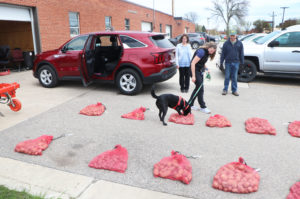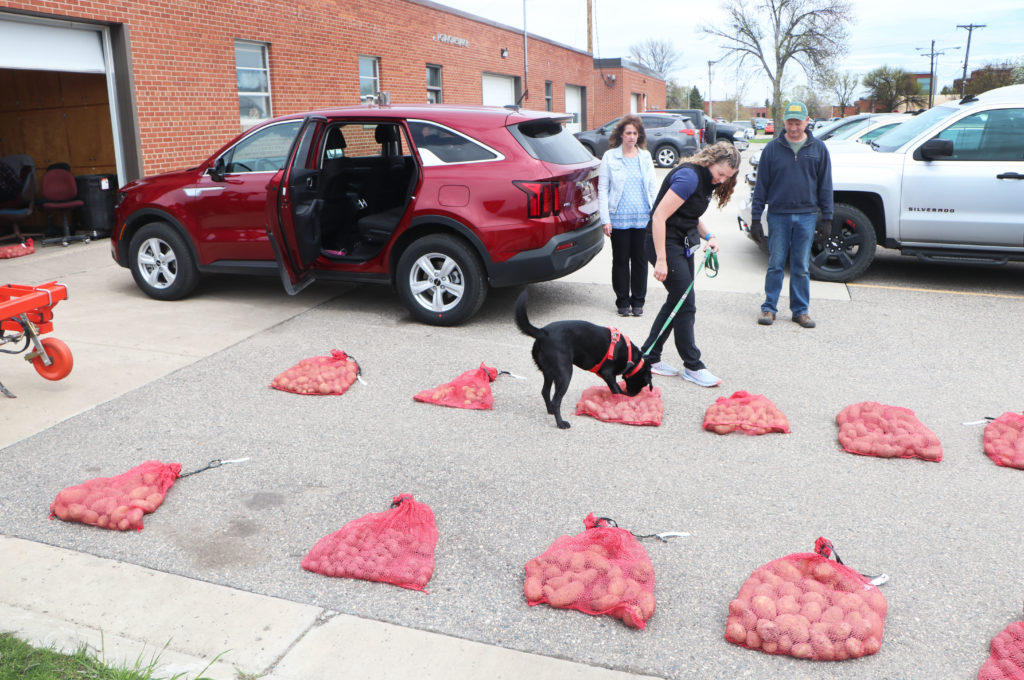North Dakota potato breeder brings in speaker who has trained a dog to detect potato virus diseases
By Mikkel Pates, Agweek Magazine
Reprinted with permission from Mikkel Pates and Agweek

Good news: The newest high-tech tool for diagnosing crop disease is also man’s best friend—a friendly dog.
Specifically, it’s a crew of five dogs trained by Andrea Parish, 46, of Dayton, Wyoming, owner of “Nose Knows Scouting.”
Parish is married to a potato crop consultant and a friend of Asunta “Susie” Thompson, an associate professor and potato breeder in the North Dakota State University (NDSU) Department of Plant Sciences.
Parish and one of her dogs, Zora, flew into Fargo, North Dakota, so that the pooch could sniff her way through the North Dakota State University potato seed development program, looking for a potato disease known as Potato Virus Y, or PVY.
The NDSU Potato Breeding Program develops new potato cultivars for grower, industry, and consumer adoption, as well as certified seed potatoes of all materials in its breeding pipeline.
NDSU staffers brought potato bags out of coolers for the dog to peruse. Parish and Zora considered each one, as a dozen people looked on.
In a swirling wind (not helpful), Zora considered dozens of bags—the tops, sides and again when the packages were flipped over—and sniffed again. When she found PVY, she’d go into alert behavior—pointing and freezing. She comes off alert when Parish gives her a “click,” or praise.
Zora evaluated NDSU’s entire seed program in half a day. Thompson said it is a tremendous savings of people and resources that can be aimed at other tasks.


